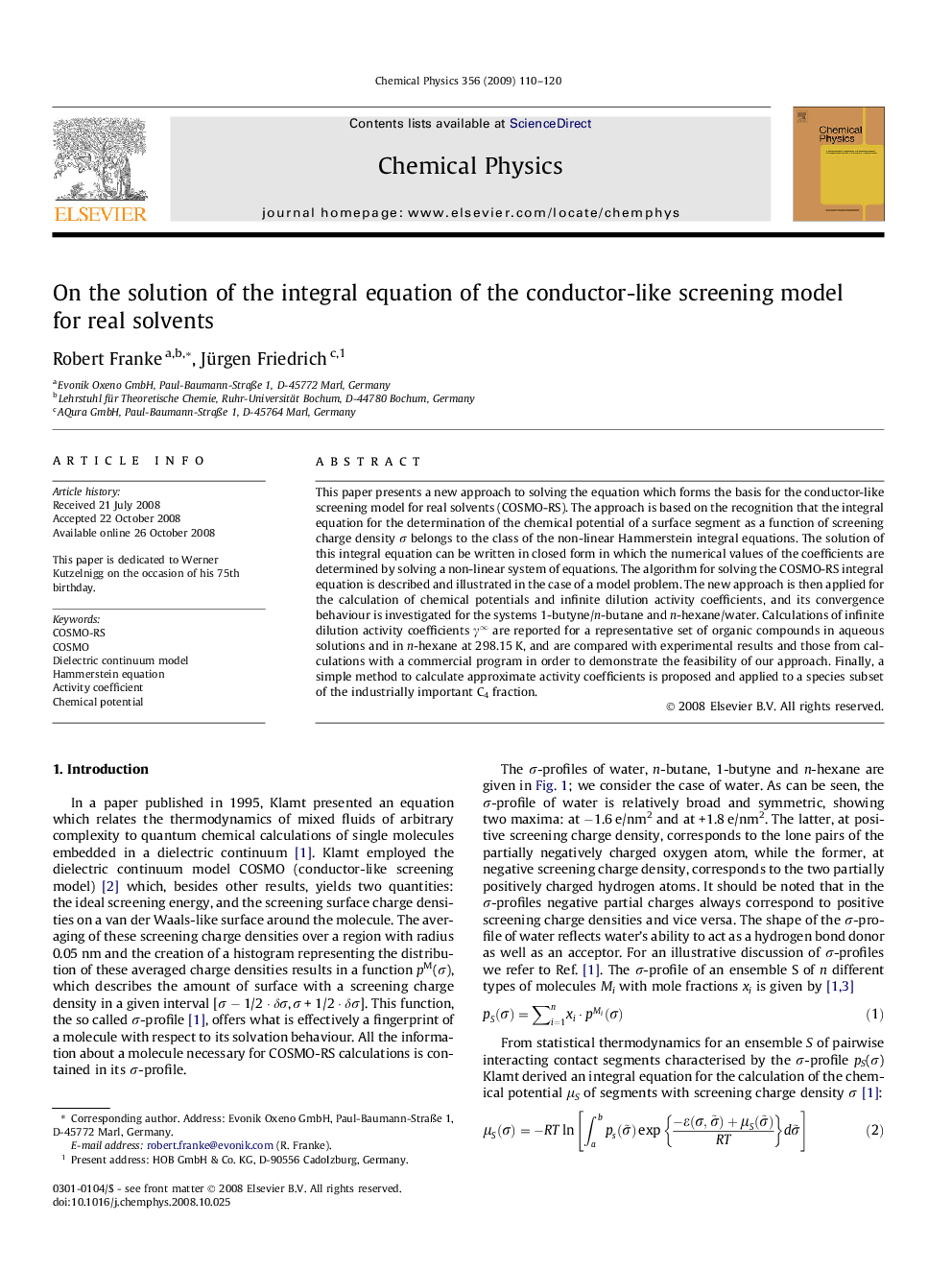| Article ID | Journal | Published Year | Pages | File Type |
|---|---|---|---|---|
| 5375572 | Chemical Physics | 2009 | 11 Pages |
Abstract
This paper presents a new approach to solving the equation which forms the basis for the conductor-like screening model for real solvents (COSMO-RS). The approach is based on the recognition that the integral equation for the determination of the chemical potential of a surface segment as a function of screening charge density Ï belongs to the class of the non-linear Hammerstein integral equations. The solution of this integral equation can be written in closed form in which the numerical values of the coefficients are determined by solving a non-linear system of equations. The algorithm for solving the COSMO-RS integral equation is described and illustrated in the case of a model problem. The new approach is then applied for the calculation of chemical potentials and infinite dilution activity coefficients, and its convergence behaviour is investigated for the systems 1-butyne/n-butane and n-hexane/water. Calculations of infinite dilution activity coefficients γâ are reported for a representative set of organic compounds in aqueous solutions and in n-hexane at 298.15 K, and are compared with experimental results and those from calculations with a commercial program in order to demonstrate the feasibility of our approach. Finally, a simple method to calculate approximate activity coefficients is proposed and applied to a species subset of the industrially important C4 fraction.
Related Topics
Physical Sciences and Engineering
Chemistry
Physical and Theoretical Chemistry
Authors
Robert Franke, Jürgen Friedrich,
